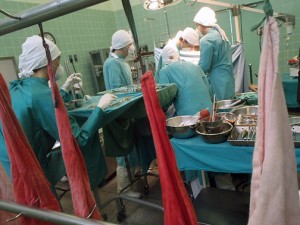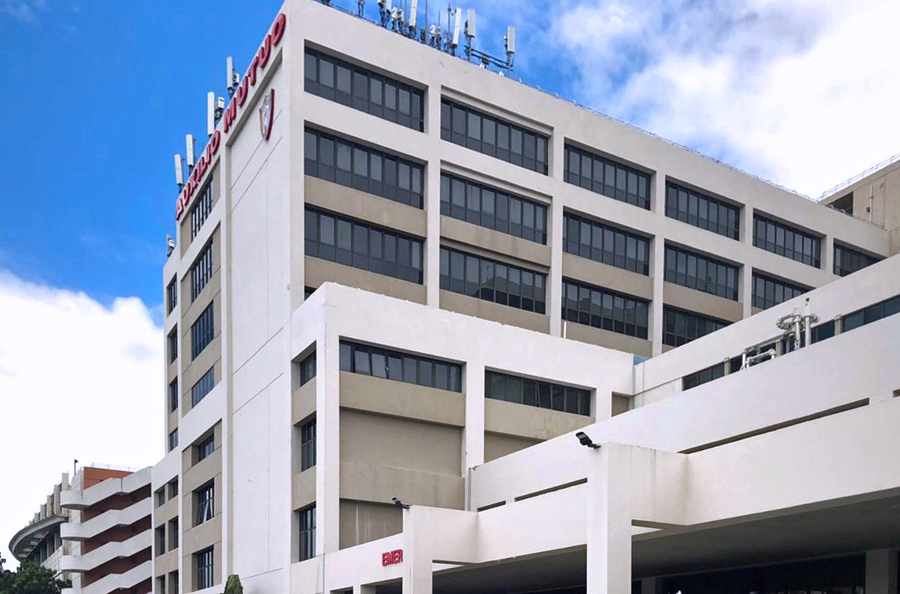P.R organ donors prop growing transplant center action


While many of those organs stay in Puerto Rico, others are transported to the U.S. for transplantation in stateside patients. (Credit: Wikipedia)
The ultimate gift of an organ by deceased donors in Puerto Rico is making it possible for sick patients on and off the island to get a new lease on life while supporting the work of two major transplant centers in San Juan.
“There is much social conscience [in Puerto Rico] about helping others,” Carlos Angel Cabrera-Bonet, executive director of the Cardiovascular Center of Puerto Rico and the Caribbean, said in explaining the impulse behind organ donations.
The Cardiovascular Center, which is now accepting heart transplant candidates from the U.S. under its medical tourism program, is one of three institutions in the U.S. with the shortest waiting time for a heart transplant. The average is about three months compared with from six months to three years in the U.S.
Meanwhile, Auxilio Mutuo Hospital recently expanded its transplantation capabilities to include bone marrow. Until this year, the hospital had concentrated its attention on three organs: kidneys, pancreas, and liver.
This year marked a record in terms of organ donations, said the man at the helm of Lifelink Puerto Rico, the island’s sole organ procurement organization dedicated to seeking donors and coordinating the donation process once a donor becomes available.
Although the actual number of donors fell from the peak year of 2007, more organs were made available this year through better management of the organ recovery process and training of physicians involved in that process, said Lifelink’s Executive Director Antonio De Vera.
As of Dec. 20, a total of 303 organs had been recovered from 101 donors, a level of recovery that broke the record set in 2007 when 297 organs were harvested from 120 donors, he told NIMB.
De Vera said more organs can now be recovered through improved handling of organs and training of hospital personnel and physicians on how to better maintain organs functional. In the past, he conceded, “we have lost opportunities to save organs” because of poor handling.
Local organs also help stateside patients
While many of those organs stay in Puerto Rico, others are transported to the U.S. for transplantation in stateside patients. That’s because organs that become available on the island are not always compatible with local candidates for transplants, in which case they are matched with stateside candidates and transported to the states in an operation that requires faultless logistics so as to ensure that the donated organs reach their destination in optimum condition and within tight deadlines.
Organs like the lungs don’t stay in Puerto Rico because there isn’t a transplant center to handle this type of operation. As De Vera pointed out, Puerto Ricans requiring a lung transplant need to go to the states and get on the waiting list of a mainland transplant center.
The generosity of organ donors has made it possible for the island’s transplantation capabilities to grow over the years. Auxilio Mutuo got the ball rolling in 1983 when it established the island’s first transplant center, initially focusing on the kidneys and then pancreas. In 2012, the hospital began transplanting livers, and, in October of this year, bone marrow. To date, the hospital has carried out well over 2,300 transplants: 2,086 of the kidney, 91 kidney and pancreas, and 139 liver.
Cardiovascular Center launched its heart transplant program in 1999 and since then has carried out 151 transplants. Ninety three of these patients are still living with donor hearts.
A branch of Florida-based Lifelink Foundation, Lifelink Puerto Rico carries out its work through educational campaigns in the media, orientations to schools, community groups and churches, and direct contacts with family members of potential donors. De Vera said the local organization has a staff of around 53 people, including office personnel, doctors and nurses. Since all finances are handled through the Florida office, he could not say what the budget for the local office is.
A local law enacted in 1996 allows people to indicate in the driver’s license application if they wish to donate their organs in the event of death in an accident. This year, around 41,514 persons signed on as organ donors through this mechanism, up from 34,162 in 2003, said Acela Soler-Estarlich, spokesperson for the Department of Transportation and Public Works.








